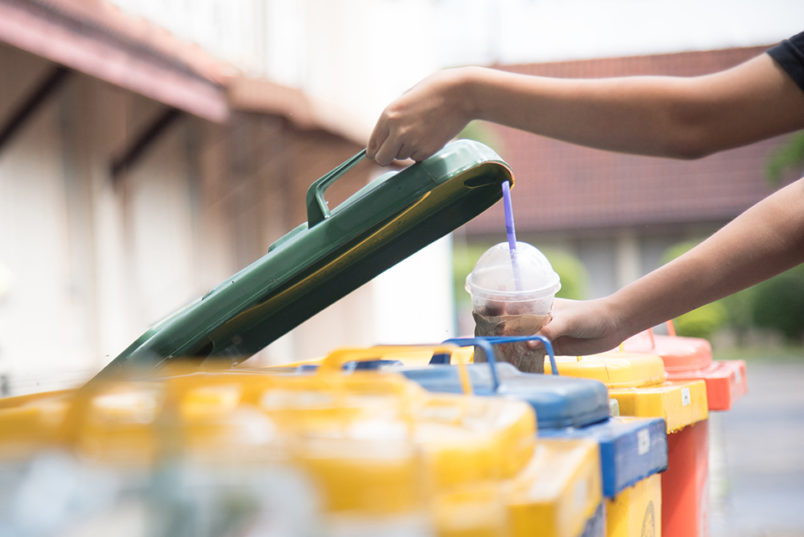By Alfred Twu
 One of the biggest challenges in recycling right now is "wishful recycling": the placing of mixed and nonrecyclable objects (cardboard boxes with other stuff in them, plastic takeout containers half full of food, or objects made up of multiple materials) in the recycling bin. While it might feel good to avoid the trash can, wishful recycling simply causes these objects to take a labor-intensive detour through recycling facilities on their eventual way to a landfill — or worse, the ocean.
One of the biggest challenges in recycling right now is "wishful recycling": the placing of mixed and nonrecyclable objects (cardboard boxes with other stuff in them, plastic takeout containers half full of food, or objects made up of multiple materials) in the recycling bin. While it might feel good to avoid the trash can, wishful recycling simply causes these objects to take a labor-intensive detour through recycling facilities on their eventual way to a landfill — or worse, the ocean.
Here's a list of ways things can go wrong:
- When cardboard boxes are compacted in the recycling truck, lithium batteries can start fires.
- In cities that mix paper and containers in the same cart, food contaminates paper, making it unsellable.
- Trash that gets baled up and exported with recyclables can end up getting sorted out in unregulated facilities where trash is dumped and ends up in rivers and oceans.
Solving the problem of wishful recycling takes both personal and policy action, such as expanding the number of places taking hazardous materials, regulations that shift food containers from plastic to compostables, and dual-stream recycling that separates materials at the source.
The chapter's Zero Waste Committee meets on the first or second Tuesday of odd-numbered months, from 7:00 to 9:00 PM at Urban Ore in Berkeley. Contact chair Alfred Twu at alfredtwu@gmail.com for meeting schedule.